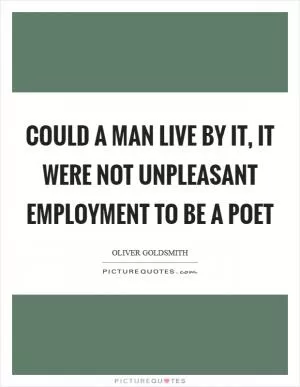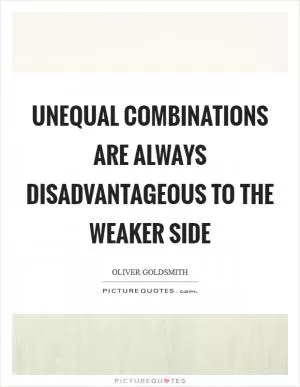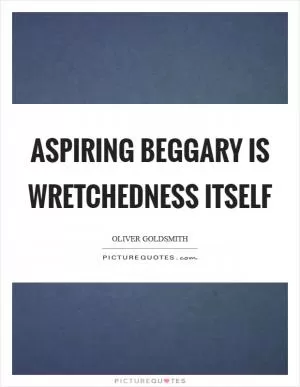While selfishness joins hands with no one of the virtues, benevolence is allied to them all

While selfishness joins hands with no one of the virtues, benevolence is allied to them all
Oliver Goldsmith, an Irish novelist, playwright, and poet, was known for his insightful observations on human nature and society. One of his most famous quotes, "While selfishness joins hands with no one of the virtues, benevolence is allied to them all," perfectly encapsulates his belief in the importance of kindness and generosity.Goldsmith understood that selfishness, the act of putting one's own needs and desires above others, is incompatible with true virtue. Selfish individuals are often motivated by greed, envy, and a lack of empathy for others. They are unwilling to share their resources or lend a helping hand to those in need. In contrast, benevolence, the act of showing kindness and goodwill towards others, is a fundamental virtue that is essential for a harmonious society.
Benevolence is not just about giving to charity or performing acts of kindness; it is a way of life that encompasses all virtues. When we are benevolent, we are more likely to be honest, compassionate, and respectful towards others. We are willing to listen to different perspectives, collaborate with others, and work towards common goals. Benevolence fosters a sense of community and belonging, as we recognize the inherent worth and dignity of every individual.
In Goldsmith's works, such as "The Vicar of Wakefield" and "She Stoops to Conquer," he often portrayed characters who embodied the virtues of benevolence. These characters were generous, selfless, and compassionate, and their actions had a positive impact on those around them. Goldsmith believed that by practicing benevolence, we can create a more just and compassionate society where everyone has the opportunity to thrive.












 Friendship Quotes
Friendship Quotes Love Quotes
Love Quotes Life Quotes
Life Quotes Funny Quotes
Funny Quotes Motivational Quotes
Motivational Quotes Inspirational Quotes
Inspirational Quotes